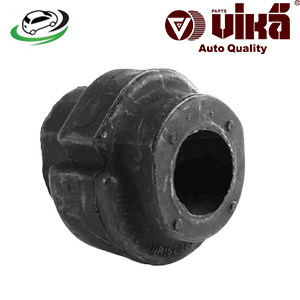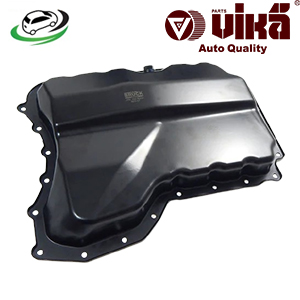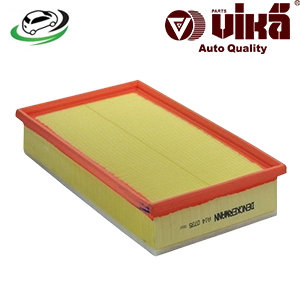-19%
Get Air Filter VW California T5 Camper/ California T6 Camper/ Multivan T5/ Transporter T5/T6 Bus 7H0129620A
The air filter in a vehicle is a crucial component that plays an essential role in the performance, efficiency, and longevity of the engine. It is responsible for filtering the air that enters the engine, ensuring that it is clean and free from contaminants such as dust, dirt, and debris. Clean air is vital for efficient combustion, and a well-maintained air filter ensures that the engine runs smoothly, delivers optimal performance, and has a longer lifespan. This article will explore the function, types, maintenance, and significance of the air filter in detail.
The Function of an Air Filter
The air filter is located in the air intake system of a vehicle and serves as the first line of defense for the engine. Its primary function is to filter the air before it enters the engine’s combustion chamber. Clean air is essential for the engine’s combustion process, where fuel is mixed with air and ignited to produce power. If the air entering the engine contains contaminants, it can cause significant damage over time, leading to reduced performance, higher fuel consumption, and even engine failure.
- Filtering Contaminants: The air filter traps dust, dirt, pollen, and other debris that could otherwise enter the engine. These particles can cause wear and tear on engine components, leading to decreased efficiency and potential damage. The air filter ensures that only clean air enters the combustion chamber.
- Ensuring Optimal Airflow: While filtering out contaminants, the air filter must also allow sufficient airflow to the engine. The engine requires a precise amount of air for the combustion process, and a restricted or clogged air filter can reduce airflow, leading to poor engine performance and increased fuel consumption.
- Protecting Engine Components: The air filter protects sensitive engine components, such as the pistons, cylinders, and valves, from damage caused by abrasive particles. By preventing contaminants from entering the engine, the air filter helps maintain the engine’s integrity and prolong its lifespan.
- Improving Fuel Efficiency: A clean and properly functioning air filter ensures that the engine receives the right amount of air for efficient combustion. This, in turn, improves fuel efficiency by ensuring that the engine burns fuel more effectively, reducing the amount of fuel needed to generate power.
Types of Air Filters
Air filters come in various types, each designed to meet specific performance and maintenance requirements. The most common types of air filters include:
- Paper Air Filters: Paper air filters are the most common type used in vehicles. They are made of pleated paper or cellulose material, which provides a large surface area for trapping contaminants. Paper filters are disposable and typically need to be replaced at regular intervals. They are cost-effective and provide adequate filtration for most standard vehicles.
- Foam Air Filters: Foam air filters are made from a porous foam material that can be soaked in oil to improve its filtering capacity. These filters are often used in off-road vehicles and motorcycles, where the air intake may be exposed to more dust and debris. Foam filters can be cleaned and reused, making them a cost-effective option for environments with high levels of contaminants.
- Cotton Gauze Air Filters: Cotton gauze air filters, often referred to as high-performance filters, are made from layers of cotton gauze sandwiched between wire mesh. These filters offer excellent airflow and filtration, making them popular among performance enthusiasts. They are washable and reusable, but they typically require more maintenance and care than paper filters.
- Carbon Air Filters: Carbon air filters, also known as activated carbon filters, are designed to remove odors and harmful gases in addition to particulate matter. These filters are commonly used in cabin air filtration systems to improve air quality inside the vehicle. While they are not typically used for engine air intake, some high-end vehicles may incorporate carbon filters into the intake system for additional filtration.
- Oil-Bath Air Filters: Oil-bath air filters are an older design that is still used in some heavy-duty and vintage vehicles. These filters use a combination of oil and mesh to trap contaminants. Air passes through the oil, which catches dust and debris, before flowing through the mesh. While effective, oil-bath filters require regular maintenance and are less common in modern vehicles.
How the Air Filter Works
The air filter operates by trapping contaminants as air passes through it on its way to the engine’s intake manifold. The process involves several key steps:
- Air Intake: As the vehicle moves, air is drawn into the air intake system. This air contains various contaminants, including dust, dirt, and pollen, that can harm the engine if not filtered out.
- Filtration: The air passes through the air filter, where the filter material traps particles and contaminants. The design of the filter ensures that even tiny particles are captured, preventing them from entering the engine.
- Clean Air Flow: After passing through the filter, the clean air flows into the engine’s intake manifold, where it mixes with fuel for combustion. The filtered air is now free from harmful contaminants, ensuring optimal engine performance.
- Continuous Operation: The air filter continuously filters air as long as the engine is running. Over time, the filter material becomes saturated with trapped particles, which can reduce airflow and affect engine performance. This is why regular maintenance and replacement of the air filter are essential.
Importance of Regular Maintenance
Regular maintenance of the air filter is crucial for ensuring the longevity and performance of the engine. An air filter that is clogged or dirty can lead to several issues, including:
- Reduced Engine Performance: A clogged air filter restricts airflow to the engine, leading to a decrease in power and acceleration. The engine may struggle to breathe, causing sluggish performance and reduced responsiveness.
- Increased Fuel Consumption: When the air filter is dirty, the engine may compensate for the reduced airflow by using more fuel. This leads to increased fuel consumption, reducing the vehicle’s fuel efficiency and increasing operating costs.
- Higher Emissions: An inefficient combustion process due to a clogged air filter can lead to higher emissions. The engine may burn fuel less completely, resulting in the release of more pollutants into the atmosphere.
- Engine Damage: If contaminants bypass a dirty or damaged air filter, they can enter the engine and cause wear and tear on internal components. Over time, this can lead to costly repairs and even engine failure.
- Poor Idling and Misfires: A restricted air filter can cause the engine to idle roughly or even misfire. This occurs because the engine is not receiving the correct air-fuel mixture, leading to incomplete combustion and erratic engine behavior.
When to Replace the Air Filter
The frequency with which an air filter should be replaced depends on several factors, including the type of filter, driving conditions, and vehicle manufacturer recommendations. However, some general guidelines can help determine when it’s time to replace the air filter:
- Mileage-Based Replacement: Most vehicle manufacturers recommend replacing the air filter every 12,000 to 15,000 miles. However, this can vary based on driving conditions. For example, if you frequently drive in dusty or off-road environments, you may need to replace the air filter more often.
- Visual Inspection: Regularly inspecting the air filter is an effective way to determine if it needs replacement. A clean air filter will appear white or off-white, while a dirty filter will be dark and clogged with dirt and debris. If the filter appears dirty or clogged, it should be replaced.
- Performance Symptoms: If you notice a decrease in engine performance, such as reduced acceleration, poor fuel efficiency, or rough idling, it may be time to check and replace the air filter.
- Scheduled Maintenance: Following the vehicle’s maintenance schedule as outlined in the owner’s manual is the best way to ensure timely air filter replacement. Regular maintenance helps prevent issues related to a clogged or dirty air filter.
How to Replace an Air Filter
Replacing an air filter is a straightforward process that can often be done by the vehicle owner without the need for professional assistance. The steps to replace an air filter are as follows:
- Locate the Air Filter Housing: The air filter is typically housed in a rectangular or cylindrical box, usually located near the engine. The air filter housing is connected to the air intake duct and secured with clips, screws, or latches.
- Open the Air Filter Housing: Release the clips, screws, or latches that secure the housing. Carefully remove the top cover to expose the air filter.
- Remove the Old Air Filter: Take out the old air filter from the housing. Pay attention to how the filter is positioned so you can install the new one correctly.
- Inspect the Housing: Before installing the new filter, inspect the inside of the housing for any dirt, debris, or oil. Clean the housing if necessary to ensure a proper seal and fit for the new filter.
- Install the New Air Filter: Place the new air filter into the housing, making sure it fits snugly and is properly seated. The filter should be installed with the correct orientation, as indicated by any markings or instructions.
- Secure the Housing: Replace the top cover of the housing and secure it with the clips, screws, or latches. Ensure that the housing is tightly sealed to prevent unfiltered air from entering the engine.
- Test the Engine: After replacing the air filter, start the engine and let it run for a few minutes. Listen for any unusual noises and check for improved performance.
Follow us on Facebook for more parts.



